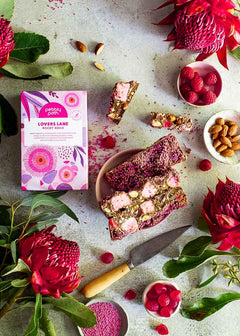Two weeks after having her second child, Tash Davis walked into her GP with an urgent message.
"I went in and I said to the GP, one of us is going to die and it will either be the baby or it will be me. And I think it's probably going to be me."
"I was falling apart. I just wanted to leave whether it was physically off the earth or physically leave my family and start a new life in Cuba. I thought they would be so much better off without me."
In her mind, Ms Davis thought her only option to ensure her children were happy and healthy was if she left and they were raised by their "perfect" father.
She was convinced she was going to destroy their lives.
Thankfully, her GP took action and convinced Ms Davis, who had been in and out of therapy since she was 12-years-old, to go on medication.
The change was almost instant.
"My whole life turned around in three days," Ms Davis said.
The Mudgee resident and former emergency department nurse had been against going on medication for her depression for decades.
There was a thought in the back of her head that said going on medication meant she was too damaged to be able to handle her mental health on her own.
"I know If any of my patients said that to me, I'd give them 14,000 reasons to get on the medication and yet I couldn't do it for myself because there's this perceived stigma and shame. And there's embarrassment because you feel like you're the only one taking medications because you're the only one crazy enough to need them," Ms Davis said.
It's been four years since Ms Davis started taking medications for her depression.
After opening her own business in 2021 - Pebbly Path Rocky Road - and seeing her social media following start to grow, Mrs Davis made the decision to post about mental health.
"People should start talking about it like 'I've got a headache' or 'I've burnt my finger'. That is so normal to say. And yet, 'I'm really struggling today because of x, y, z and I really need to stay home and look after myself', that's suddenly not okay," she said.
"It shouldn't be so secretive because everyone is dealing with something at some point in their lives. Some people deal with it all their lives, some people just have a crisis situation when they have to deal with it. Some people can just go to therapy a few times, implement some new habits and then their lives are significantly better."
She wants to encourage people to feel comfortable enough to say they're having a bad day, or they take medication for their mental health or they struggle in social situations.
"Social media, as everyone knows, is a huge part of the problem. But at the same it can be a massive part of the solution because it's your opportunity [to speak out]. You don't have to say it to someone face-to-face, you don't have to say 'I've got this diagnosis' or anything so specific, but you can stick whatever you want on stories and it's there for 24 hours, then it's gone," Mrs Davis said.
In honour of October being Mental Health Awareness Month, Mrs Davis posted about taking mental health medications as part of the #postyourpill movement. She hopes it helps remove the stigma others may be feeling.
As well as normalising those discussions, the business owner is also using her platform to support mental health organisation LIVIN. A percentage of her profits are donated to the charity every month.
Her mental health has significantly improved since she started taking medication, but Mrs Davis admits it's still a daily effort.
"I'm 38. So for 34 years I 'practised' spiraling out of control, and flying off the handle and living in a general state of anxiety. All my really awful coping strategies are still there but I'm learning and practising new coping strategies to come naturally, which is going to take a lot of work," she said.
"I'm a much better partner, friend, daughter, everything. But by no means am I perfect, and that's ok."
- Support is available for those who may be distressed. Phone Lifeline 13 11 14; Kids Helpline 1800 551 800; beyondblue 1300 224 636




Leave a comment